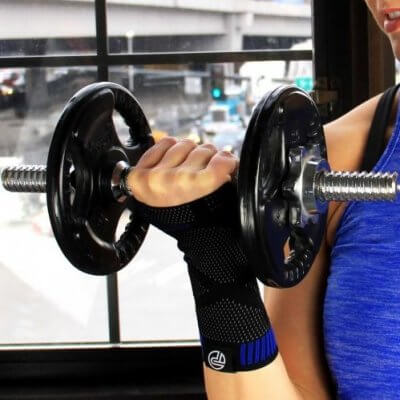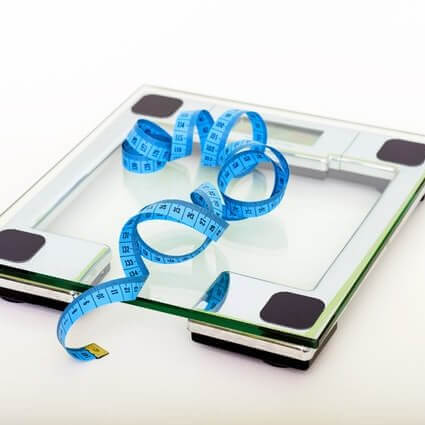
Writer: Devon Caley TLLP, MS, CBIS
Licensed Psychotherapist
Website: alchemyofauthenticity.wordpress.com
As a clinical health psychologist, I know how deeply your body is guided by your mind, and your mind is fueled by your body. As someone on social media, I know I’ve seen a million variations of that post along the lines of “it doesn’t matter how often you’re in the gym or having a proper diet, if you’re not taking care of your mind just as well, you’re not totally healthy.”
And to that I say: heck yesss.
Fitness is 100% a psychological sport. I remember my middle school soccer coaches even telling me back then, the game is 10% physical, 90% mental. It’s about getting in your competition’s head, trusting your body to accomplish what it needs to, and thinking quickly on the spot.
Except as an adult, your competition in fitness is usually just yourself. Yourself versus excuses about finding time, yourself against what you weigh on the scale and how that makes you feel, yourself versus the fitness models you see on social media and how those images make you feel, yourself versus fatigue, yourself versus “I know I said I’d do fifteen reps in this set, but really only I will know if I just do ten…”, etc.
So this means the cool thing about fitness is that with an improved growth mindset, you will be infinitely more capable of crushing whatever health goal you set.
So from a mental health perspective, here are 8 things that I think are important to consider when growing in your overall fitness and health in the gym:
1. Fake It Till You Make It

This advice comes to you from me sometimes looking like a crazy person at the gym because I refuse to frown. I refuse to wear that face that says “I really and truly just struggled on that set.”
Truly, some therapeutic modalities have a strategy that says: smile until you feel better. If you abide by the theory of emotion that implies emotions follow physiological cues (for example, feeling happier after faking a smile), you may just hate your most challenging exercises a little bit less.
So rather than thinking “I really and truly just struggled on that set”, I think “Even though that was way fewer reps than last week, how amazing is it that I managed even a few reps of that set when a year ago I couldn’t even squat just the bar?!”.
This rule also applies to feeling like you don’t fit in at the gym, or to people who don’t feel like they know what they’re doing just yet. That’s okay! You actually getting to the gym and showing up and getting there is absolutely the hardest part. And you did it. Everyone starts somewhere, so if you believe you’re a crossfitter, weight trainer, yoga genius, etc, you absolutely are. Mindset trumps all.
2. Make SMART goals!
Hey, here’s some awesome advice: get to the gym. Lose some weight. Lean out. Gain some more muscle.
“Awesome! How though?”, you as a beginner may be asking.
Great question, because that helpful “advice” people may be giving, wrapping them up in a bow like they should be the ultimate goal, is ultimately bad advice. It’s way too broad. It’s pretty vague. And it makes you feel like the solution is just so simple, that you’re not good or smart enough to figure it out, when breaking it down into much smaller, more manageable goals will not only make you feel more accomplished, but give you a better sense of direction.
SMART goals are:
S = specific (state exactly what you want to do)
M = measureable (what metric will gauge your success)
A = achievable (is this realistic and attainable?)
R = relevant (the goal makes sense for what you want to accomplish)
T = time-based (what is your deadline)
So let’s review:
How does “get to the gym” sound versus “I’m going to go to the gym three days a week for one hour after work, rotating through my cycle of cardio, upper body, and lower body workouts to lean out and tone my body before my best friend’s wedding in December.”?
3. Working Out Should NOT Make You Miserable
When done right, working out is truly fun! If you’re waking up early and losing an hour and a half of precious sleep to fit in some morning cardio, further exhausting yourself and pushing yourself closer to fatigue, the cardio is NOT WORTH IT.
If you’re having a day where you’re dragging yourself to the gym because you’re beyond exhausted, SKIP THE WORKOUT.
Have compassion for yourself. Some days you genuinely will be too tired. That does not make you weak, it means revamping your health plan to optimize your energy. It means maybe incorporating more snacks or catching up on sleep. Recovery is just as important as the hard work when it comes to growth and improvement. You are not weak for needing a break, you are not weak for being able to do less reps or less weight than the week or even the day before, and you’re not undedicated or neglectful for taking a scheduled day off.
Also, remember that bloating is a thing and our weight can fluctuate multiple pounds throughout a day. And pretty much nobody has bomb abs year round, 24/7. Some of the best advice someone training me gave is that most fitness models absolutely do not look like that all the time. And pretty much nobody just has washboard abs constantly. Most pictures you see are flexed or pumped after a workout (and in great lighting), not just average day-to-day looks. So compete with realistic goals, do not make yourself miserable trying to achieve the impossible.
Also, ladies who are on your cycle, absolutely practice compassion that week with your ability and diet. And check out @stephanie_buttermore on Instagram for more on that.
4. It’s Okay To Be Full Of Yourself

Maybe this is just a rule I’m setting to feel better about myself, but also I love seeing people’s progress and updates on social media.
Not only will posting about your goals help improve your accountability on follow-through, but day-to-day, it’s hard to see change and progress. Taking progress pictures will help you follow your own journey and appreciate changes in your body in a new way.
Also you’re totally fine for checking your new body out in every reflective surface you pass. It’s been a year and I still do that, only because I can’t believe I have noticeable hamstrings for the first time ever in my life. And probably other reasons, but appreciating your own body does not make you conceited.
People will also sometimes make judgey comments about you wanting to work out before high-carb meals or you being “too into” your body, or say things like “what do you mean you can’t just sit down and eat a cheeseburger and milkshake or slice of cake, it makes people happy!”, but do NOT let that guilt make you doubt your accomplishments or wonder if you’re being sort of full of it for wanting to follow through on your goals. Cake absolutely does make people happier. Earning that cake as a carb backload following a heavy training session just makes some people even happier.
Stick to your guns.
5. It’s Okay to Ask For Help – Also Networking Is Awesome
Something I’ve learned in my fitness journey is most people who are fit are also very nice. They’re motivated, they have great goals, they know what it feels like to struggle, they know what it feels like to not be comfortable in their own skin, and they know how to make things happen.
I’ve walked up to people at the gym and straight up asked them for help. I ask what exercise they’re doing and how it works their body. I ask how to get legs like theirs. And zero percent of the time has anyone been offended. And one hundred percent of the time they’ve helped me.
I’ve made so many friends in the gym (especially a shout-out to Alexandra Height [@alexandraheight on Instagram] who became my trainer for a pageant and plugged me into a bigger community of fitness women, all after I complimented her Star Wars leggings).
People will help. People want to help. And we grow together. Follow people on Instagram who inspire you and post new workouts you want to try. Say hello to people you see regularly at the gym. Asking people for help is a direct compliment to their hard work and physique and can ultimately land you some advice, or better yet, a friend.

6. Measure Your Success In The Correct Numbers
Okay, here we come back to mindset. Focusing on improving rather than losing will help you in the long run. Play to win, not to just not lose. DO NOT focus on pant size, weight, or calories.
Instead, focus on number of reps, weight you can lift, distance you can run, macros to fuel your body, number of workouts you can get in a week, and the number of cute matching workout outfits you can own before it becomes obscene.
Maybe scratch that last one…
But you get my point. When you focus on your growth, you focus on your improvement and becoming better. You focus on becoming stronger and healthier rather than becoming less insecure or becoming more aesthetically pleasing. Bodies don’t do aesthetically pleasing. They aim for survival and overall health. We can all eat and work out exactly the same, and we would never all look exactly the same. So work for your body. Work for your goals. And in the meantime, things like leaning out, losing fat, and dropping pant sizes will happen.
Though keep in mind, you WILL gain weight sometimes as you work out, except in muscle.
You WILL gain clothing sizes sometimes as you work out, to again accommodate those new muscles and that new body type. I’ve gone up two sizes since I’ve started working out, but look way better in a size 2 than a 00, let me tell you. Gaining weight in muscle is not the same as gaining weight in fat. Our bodies carry muscle much differently.
Focus on fuel, not on fear.
Focus on growth, not insecurities.
Focus on improving, not what holds you back.
Focus on the correct numbers when it comes to your fitness.
7. Focus On The Difference Between Competition and Inspiration
Mindset coming in here, again!
Focus on finding inspiration. I follow Karina Elle on Instagram and she is my ideal. I accept that I will never look like her, but whenever she comes up in my timeline I think, “Karina looks so good. And she’s right, I should put the Oreos down and make sure I get in my workout today.”. And in that way she helps me perform and look my own personal best.
Competition is healthy, it’s good. And it keeps us motivated until it becomes our downfall.
When we compare, we can push ourselves too hard, try to lift too much weight, push ourselves to grow before we’re ready, tackle exercises way ahead of our comfort zone, and ultimately end up hurting ourselves. And then feeling weak or not good enough because we couldn’t tackle something our bodies were not physically ready to take on.
I remember being embarrassed struggling to curl my five pound dumbbells in the gym with people around me curling 40+ pound dumbbells, but nobody else thought twice about what I was doing, it was my own embarrassment that made me feel like everybody else was staring. And now when I see someone curling five pound dumbbells in the gym, I get so excited for them that they’re making progress and on their way to lifting way more.
Do not compare your fitness timeline to anyone else’s. Find inspiration to motivate you, but not to use as an absolute guideline. Most people you see have been working out and eating a certain way for years and know what works best for their own bodies. You will get there, just don’t try to go there before your body is ready.

8. Diet Can Make or Break Mental Health
Your body is a well-oiled machine that needs plenty of the right foods to operate properly. Without proper diet, focus and concentration are more difficult, fatigue can be worse, you may be more likely to have GI problems or a probiotic imbalance, and just might feel overall pretty crummy. Not to mention, some vitamin deficiencies can mimic mental health symptoms.
For example: B12/folic acid, Omega-3, and Vitamin D deficiencies can mimic depressive symptoms and exacerbate fatigue. Imbalances of probiotics can exacerbate depression or anxiety. Medium-chain fatty acids like coconut oil fuel the brain like a carb and can be protective against certain types of dementia. Turmeric is anti-inflammatory and can protect our brains from injury and disease. Berries and fish-based diets can also be strong mood boosters.
Not to mention, dehydration can result it up to a 20% decrease in physical performance levels., as well as generally slow down cognitive performance.
Fitness is not just working out or mental health, but finding a balance for fueling your body. Learning about counting macros and which supplements best complement your body can take your health to new heights.
For more mental health tips and inspiration, follow @alchemyofauthenticity on Instagram, The Alchemy of Authenticity on Facebook, blog at alchemyofauthenticity.wordpress.com, or email Devon at [email protected].
Want sports medicine news and information delivered straight to your inbox?
By submitting this form, you are consenting to receive marketing emails from: . You can revoke your consent to receive emails at any time by using the SafeUnsubscribe® link, found at the bottom of every email. Emails are serviced by Constant Contact